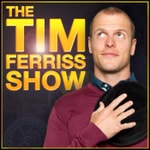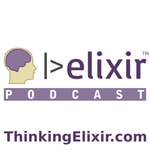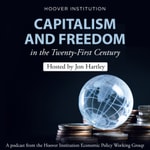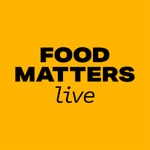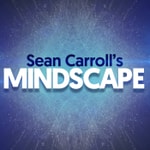Boston Computation Club – Details, episodes & analysis
Podcast details
Technical and general information from the podcast's RSS feed.
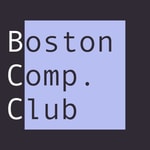
Boston Computation Club
Max von Hippel
Frequency: 1 episode/20d. Total Eps: 76

Recent rankings
Latest chart positions across Apple Podcasts and Spotify rankings.
Apple Podcasts
🇨🇦 Canada - mathematics
04/08/2025#18🇬🇧 Great Britain - mathematics
04/08/2025#27🇺🇸 USA - mathematics
04/08/2025#72🇫🇷 France - mathematics
04/08/2025#18🇨🇦 Canada - mathematics
03/08/2025#26🇬🇧 Great Britain - mathematics
03/08/2025#25🇺🇸 USA - mathematics
03/08/2025#70🇫🇷 France - mathematics
03/08/2025#16🇨🇦 Canada - mathematics
02/08/2025#25🇬🇧 Great Britain - mathematics
02/08/2025#21
Spotify
No recent rankings available
Shared links between episodes and podcasts
Links found in episode descriptions and other podcasts that share them.
See all- https://www.stanford.edu/
145 shares
- https://julialang.org/
12 shares
- https://jdh.hamkins.org/
10 shares
- https://youtu.be/bVpUlJU-piA
2 shares
- https://youtu.be/VMqF06fDljU
2 shares
- https://youtu.be/doeauZv3JrE
2 shares
- https://github.com/kbsec
1 share
- https://github.com/boxbeam
1 share
RSS feed quality and score
Technical evaluation of the podcast's RSS feed quality and structure.
See allScore global : 33%
Publication history
Monthly episode publishing history over the past years.
08/25/24: An Introduction to Lurk with Matej Panciak
dimanche 25 août 2024 • Duration 01:01:08
Matej Panciak holds a PhD in mathematics and is a software engineer at the Argument Computer Corporation, where among other things, he works on Lurk. Lurk is a LISP for defining computations that can prove (in the ZKP sense) that they ran, which is probably useful for all sorts of cool things we haven't thought of yet, but right now, is pretty important for doing stuff on-chain. (I can easily imagine this being applicable to building something like a dweb version of AWS ... in some theoretical future where FHE is so good that you can just trust randos to run code for you). Anyway, Matej presented a super rad intro to Lurk, gave us a code demo (it worked!) and then enjoyed our usual über-nerd conversational segment at the end.
08/17/24: Efficient Synthesis of Symbolic Distributed Protocols by Sketching with Derek Egolf
samedi 17 août 2024 • Duration 52:14
Derek Egolf is a PhD student (since 2021) at Northeastern University, advised by Stavros Tripakis. His primary research focus is the automatic generation of correct-by-construction systems from high-level specifications (synthesis). Today Derek talked about his recent paper in this vein, Efficient Synthesis of Symbolic Distributed Protocols by Sketching, to appear in FMCAD. This was a very interesting talk with a technical conversation afterword. We hope you enjoy it as much as we did!
03/08/24: Bitwuzla with Mathias Preiner
samedi 9 mars 2024 • Duration 59:31
Mathias Preiner is a Research Scientist at Stanford University in the Centaur lab. He is one of the main developers of the SMT solver Boolector (since June 2012) and Bitwuzla -- which is what he joined us to discuss today. This was a good talk, but an excellent Q&A, and we really enjoyed it. Thanks Mathias for joining us today, and to the awesome audience for showing up with such deep and technical questions!
01/13/24: How to Fund your Projects by Remembering One Number with Joe Shiraef
dimanche 14 janvier 2024 • Duration 45:34
Joe Shiraef is a professional card counter and indie game dev. Today he joined us for a very fun, free-form conversation on advantage play, indie game development, avoid arrest, and pursuing your passions.
https://www.inktalestudios.com/
12/15/23: Q&A on Puzzles, with Roger Barkan in conversation with Jacob Denbeaux
vendredi 15 décembre 2023 • Duration 01:04:37
Today puzzle-maker Roger Barkan joined us to talk about the creation and solution of cave puzzles, a category of puzzle for which he's quite famous as a puzzle author. Jacob lead the conversation, using an interactive puzzle that he implemented with the help of ChatGPT (:0), and it was a ton of fun. We're super grateful to Roger for joining us today and we look forward to doing a follow-up event sometime in the future!
Jacob's interactive: https://bstn.cc/artifacts/jacobDenbeaux/cave.html
Buy Roger's book (you know you want to!): https://www.barnesandnoble.com/w/colossal-cave-collection-roger-barkan/1125542215
11/19/23: Semi Open-Source Robotics with Jan Hennecke
lundi 20 novembre 2023 • Duration 01:04:20
Jan Hennecke is an engineer and roboticist in Boston, MA. Jan has been a buddy of mine for ages, ever since we met at the Bernardo Faria Jiu Jitsu Academy where he told me a hilarious story about placing top-3 in his first half ironman while munching down on snickers. Today Jan joined us to talk about his work at RBTX, a marketplace and platform for low-cost automation. This was a really fun talk with a lot of audience engagement and I think many of you will find it interesting!
11/04/23: Logic in Color with Christian Williams
samedi 4 novembre 2023 • Duration 57:33
Today Christian Williams joined us to talk about his dissertation project, Logic in Color. This is a really exciting project which he is now working on post-graduation, which aims to re-frame the way we think about logic, and logics, using a largely visual medium. The key insight is that certain mathematical observations are made completely obvious simply by adding color to the areas enclosed by arrows in monoidal string diagrams. But from this key observation comes the more foundational view that really, all of mathematics and logic not only can be expressed visually, but in some sense, perhaps _is_ visual; that the medium is exposing something fundamental about the nature of thought itself. This sounds a little pretentious but it's actually just the opposite: it's a fairly radical effort to _simplify_ logic and category theory using a visual medium. And it's enormously exciting. We were really happy Christian gave us this ground-floor view on his project and we're super excited to see where it develops.
10/21/23: How to Write a Coequation, with Todd Schmid
samedi 21 octobre 2023 • Duration 01:12:11
Todd Schmid
an Assistant Professor in the Computer Science Department of St. Mary's College of California. They are generally intereted in the algebraic, coalgebraic, and logical foundations of program semantics, and recently completed a PhD as a part of the PPLV group in the Computer Science Department of University College London. Today Todd joined us to talk about coequations, a fascinating (categorical) subject relating to the how we add algebraic structure to a space, how we think about relationships between spaces, and more. It turns out that coequations show up all over the place -- in DFAs, Markov chains, various PL concepts, etc. -- and so this is a place where the more abstract categorical stuff turns out to be really useful and illuminating for fairly concrete computer science ideas. Plus, coequations are just plain neat! We were really lucky to steal a little over an hour of Todd's time on this beautiful Saturday and we hope you enjoy the talk as much as we did.
10/07/23: Artificial Intelligence, Openness, and "Existential" Risk: Well Informed Vibes on What is Hype and What is Real, with Avijit Ghosh, David Widder, and Fabio Tollon, moderated by Wei Sun
samedi 7 octobre 2023 • Duration 01:14:48
Avijit Ghosh is a Research Data Scientist at AdeptID and a Lecturer in the Khoury College of Computer Sciences at Northeastern University. He's a good friend of mine and was an element of my PhD cohort at Northeastern. He's also a well-respected researcher at the intersection of machine learning, ethics, and policy. You can read about some of his innovative and cross-disciplinary work, for example, in the New York Times.
David Widder is a Postdoctoral Fellow at the Digital Life Initiative at Cornell Tech, and earned his PhD from the School of Computer Science at Carnegie Mellon University. If you know me personally, you might remember David because he and I were simultaneously involved in parallel antics to fight non-consensual workplace sensors at CMU and NEU, respectively. Another funny coincidence is that David and I attended the same international boarding school program, called United World College. But most importantly -- David is a first-class researcher in the space of AI ethics.
Fabio Tollon is a South African philosopher of technology, currently completing a post-doc at the University of Edinburgh. Coincidentally, he taught a philosophy of science class that my fiancé took as an undergrad! Fabio's research focuses on developing a robust meta-ethical grounding in our approach to the ethics of AI. Without rigorous conceptual apparatus, Fabio argues (and we concur) that we will be lost in our ethical analysis of these emergent and ubiquitous artificial systems.
TODAY, we hosted a wonderful panel discussion on AI ethics, with the above three panelists, and moderated by the long-time Boston Computation Club member, mathematician, and data-scientist Wei Sun. This was extremely informative, a lot of fun, and wildly interdisciplinary. Wei guided the discussion in a number of interesting discussions, and then the panelists fielded questions form the audience at the end. We didn't have enough time to answer everyone's questions but listeners are highly encouraged to email the panelists for follow-up :) .
I'd like to thank all the panelists and Wei again for showing up and making this event the special moment in time that it was, and the diverse and highly engaged audience for participating in this project. This was a lot of fun and highly intellectually stimulating, and I hope we can do more events like this in the future.
09/17/23: Open Problems in Probabilistic Programming Semantics with Eli Sennesh
dimanche 17 septembre 2023 • Duration 01:04:34
Eli Sennesh is a recent graduate of the PhD program in computer science at Northeastern, in which I (Max) and many other BCC group members are currently enrolled. Eli's research is highly interdisciplinary, taking into consideration various topics in mathematics (statistics, measure theory, probability theory, optimization), programming language theory, and neuroscience, with the unifying goal of building useful probabilistic programming languages. Today Eli joined us to discuss that research, with a particular emphasis on important open problems -- problems which he intends to study as a post-doc! This was a fun one and an excellent introduction to the world of probabilistic programming, and we really appreciate that Eli took time out of his weekend to come talk to us.
- Eli's website: https://esennesh.github.io/
- Eli's advisor's book on probabilistic programming: https://arxiv.org/abs/1809.10756
